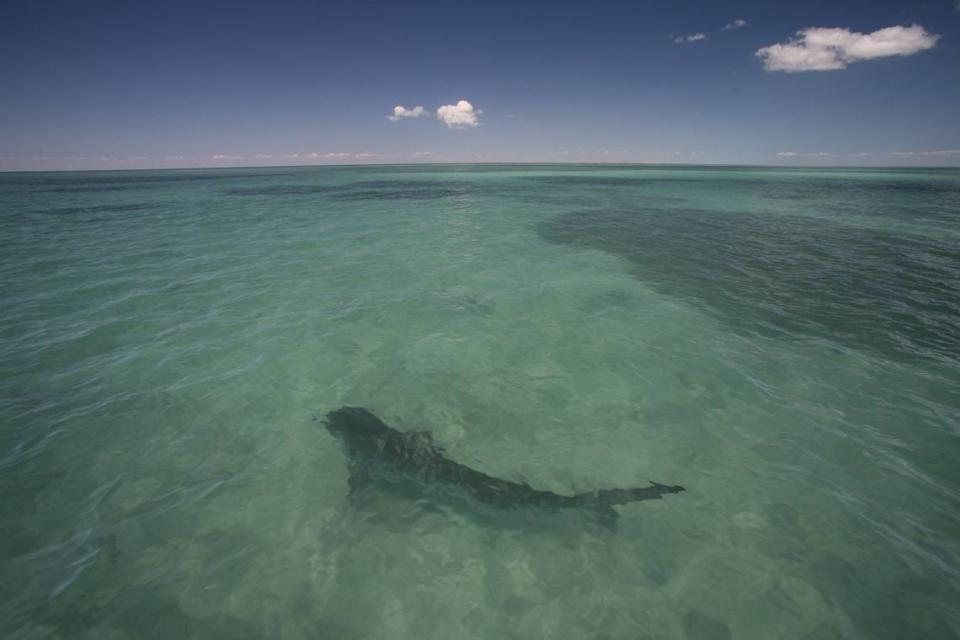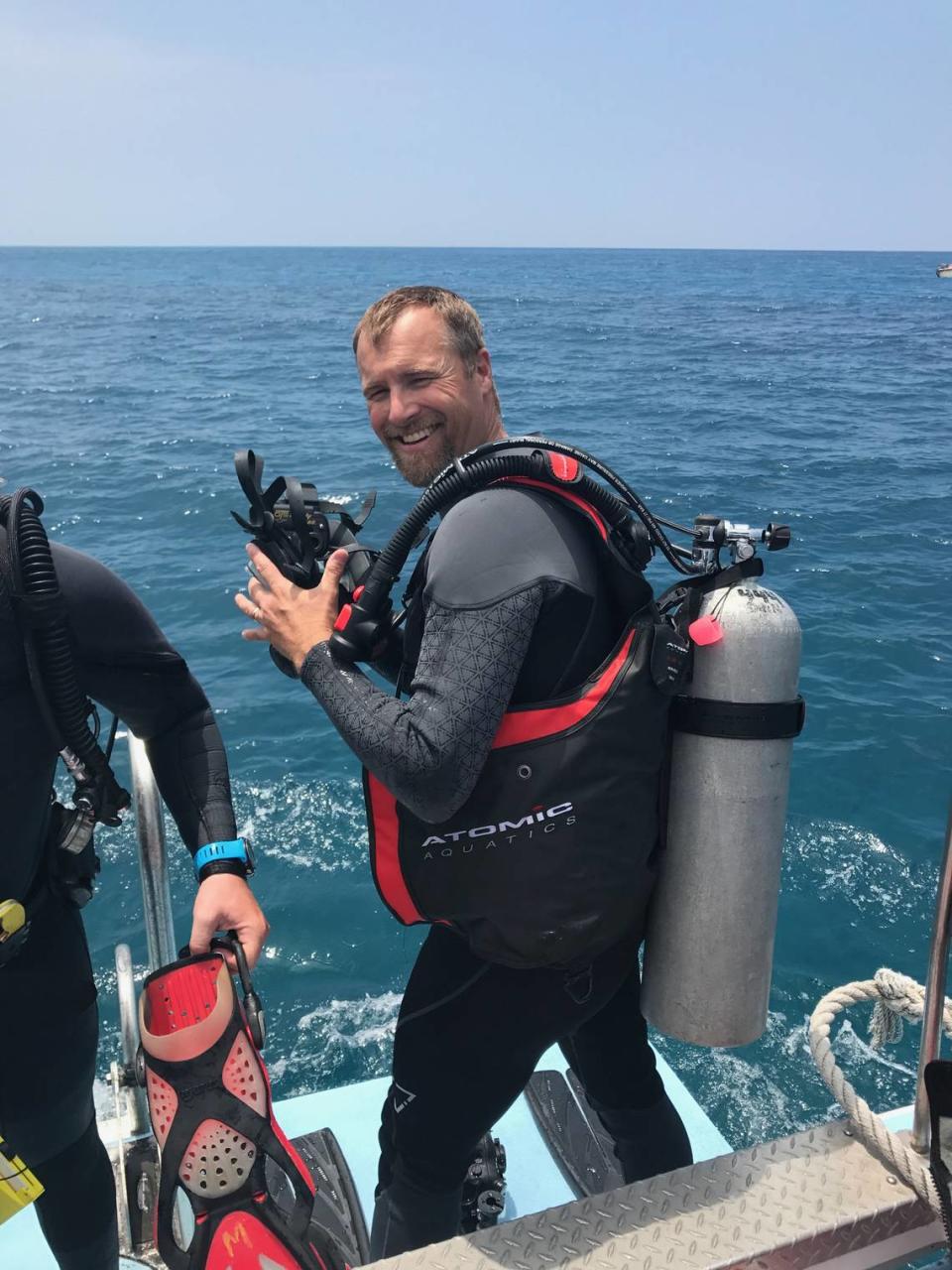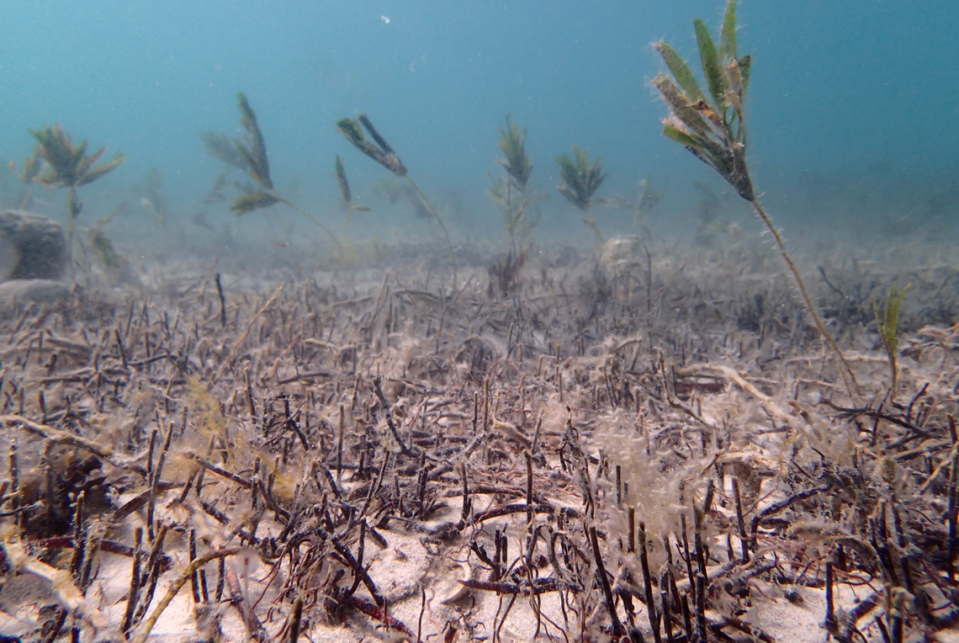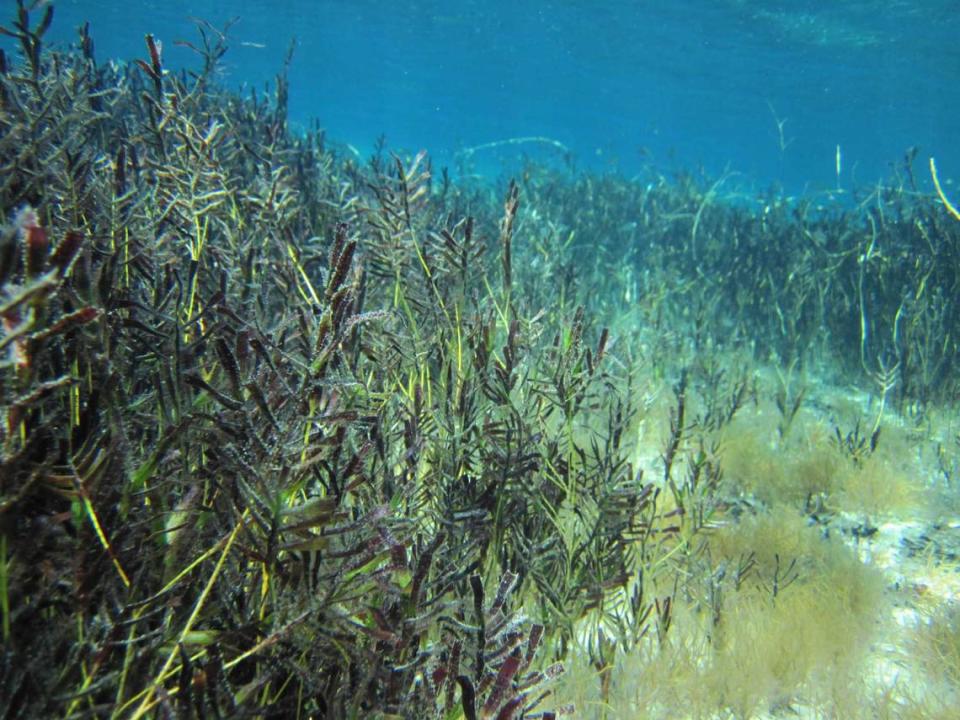Can sharks save the ocean from hurricanes? Their diet might just be the magic recipe
When a major hurricane, extreme heat or other climate threat devastates an ocean’s lifeblood, its recovery could be aided by the presence of sharks.
Sharks as oceanic medics?

That’s the idea behind a study on sharks and their role in the ocean. The study, led by researchers at Florida International University, was published Wednesday in the Journal of Animal Ecology.
Decimate sharks and you’ve made oceans less resilient to extreme climate events, said the FIU scientists; researchers at the University of Washington and Deakin University in Victoria, Australia also contributed to the study.
The study was conducted from May 2013 to August 2014 and funded through a combination of a National Science Foundation Rapid Response grant, the PADI Foundation, fellowship awards and public donations.
The team included lead author Rob Nowicki, a research affiliate at Sarasota’s Mote Marine Laboratory (he did the research as a Ph.D. student at FIU). He was joined by co-author Mike Heithaus, a marine ecologist and dean of FIU’s College of Arts, Sciences & Education, and FIU seagrass expert James Fourqurean.
What FIU researchers learned
The team found that predators, like some sharks, including tiger sharks in this study, are critical for maintaining stability and biodiversity in the world’s oceans. The study found sharks are important in helping ecosystems recover when devastation hits from hurricanes or marine heatwaves.

Sharks eat grazing animals that feed on aquatic plants like seagrass — which helps maintain water clarity, stores carbon dioxide and houses fish and other organisms that can keep seas healthy, the researchers say.
To reach its conclusion, the team conducted a 16-month study in Shark Bay, Australia, an area populated by tiger sharks and dugongs, a cousin to the Florida manatee. Dugongs are strictly marine animals, whereas manatees can thrive in freshwater areas.
“Grazing animals, including turtles and dugongs, eat seagrass. Sharks eat the grazers. Grazers fear the sharks. So, when sharks are around, the grazers often avoid the area. While the grazers are away, the aquatic plants have time to grow and recover. When an extreme climate event strikes, the ecosystem must deal with a whole new set of variables that requires time to recover,” the study said.
Why Shark Bay was chosen
Shark Bay was selected because a historic heatwave had decimated much of the bay’s seagrass canopy in 2011. Recovery was slow but was aided by the seasonal presence of sharks, researchers found.

The grazers feed on shallow seagrass meadows but swim to deeper waters until sharks leave in winter. But the 2011 heatwave destroyed much of the shallow seagrass canopy, and the dugongs munched much of what was left.
Researchers wanted to know what would happen if the sharks didn’t return during the summer and the dugongs had free rein to eat up the grass.
In April and May 2013, the team placed 30 experimental plots 2 to 3 meters deep in two seagrass banks in Shark Bay. By using previous calculations of how many dugongs were around and how much they ate, researchers were able to mimic the way dugongs feed on the seagrass in the summer and what it would be like if there were no sharks around, FIU reported.
“Their experiment left the area with no recovery time — meaning if the dugongs grazed year-round, they’d end up inadvertently destroying the critically important seagrass canopy. The research shows that when top predators are gone, not only does the structure of the ecosystem break down, but it’s also all-but-impossible for that ecosystem to stage a comeback,” FIU said in a news release.
An ecosystem in balance
“One of the reasons we did this study is because we think it’s important to be thinking about how everything is linked and sometimes those linkages are surprising,” Nowicki said in a statement. “But they show climate resilience is not something that happens on its own. It happens in conjunction with species conservation.”

Every ecosystem on the planet depends on a delicate balance of relationships, Heithaus added. The findings fulfill one of the study’s goals to keep the “links linked” — meaning conserving predators and prey.
“Ultimately to rein in climatic extremes that are becoming more common and intense, we know we need to cut carbon production. But that’s going to take time,” Nowicki said.
“It’s almost like we’re on a leaky boat with a hole. We need to fix the boat at some point, but in the meantime, we can grab a bucket and get the water out. That’s kind of what we’re doing here — we’re making the case that protecting predator species and keeping these species relationships can actually lead to resilience to these events. It can buy us time,” Nowicki said. “And we need as much time as we can get.”

